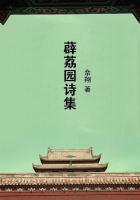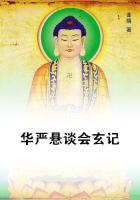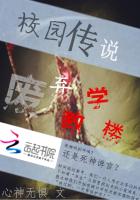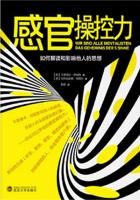<Active Power in General>.He argues resolutely, that we have an idea of active power, and examines the doctrines of Locke and Hume.It does not appear to him that there can be active power " in a subject which has no thought, no understanding, no will." He maintains that natural philosophy, even if brought to perfection, " does not discover the efficient cause of any one phenomenon in nature." He draws the distinction between efficient and physical causes." A physical cause is not an agent.It does not act, but is acted on, and is passive as to its effect."(P.74.) He holds that it is the business of natural philosophy, to discover physical cause.On this, Cousin remarks that " to pretend that all cause is necessarily endowed with will and thought, is to deny all natural cause." The human race believes in the reality of natural causes: it believes that the fire burns, that the fire is the cause of pain which we feel, &c.; and, at the same time, according as it reflects, it attaches all natural causes to their common and supreme principle." When we discover a true physical cause, say that oxygen and hydrogen when joined in certain proportions, produce water, intuitive reason leads to believe that there is property, that is power, in the object; that the physical cause is truly {226} an efficient cause; and that the effect follows from a power in the agents.
<Will>.He is a strenuous advocate of free-will."Every man is conscious of a power to determine in things which he conceives to depend on his determination." He draws the distinction between desire and will." The distinction is, that what we will must be an action, and our own action:
what we desire may not be our own action; it may be no action at all.The following statement is taken from the manuscripts: "I grant that all rational beings are influenced, and ought to be influenced, by motives.But the relation between a motive and the action is of a very different nature from the relation between an efficient cause and its effect.An efficient cause must be a being that exists, and has power to produce the effect.A motive is not a thing that exists.It is only a thing conceived in the mind of the agent.Motives supply liberty in the agent, otherwise they have no influence at all." Such statements may not go down to the depths of this deep subject, but they are worthy of being considered and weighed.
<Principles of Action>.By which he means "every thing that makes us to act." He divides them into mechanical, animal and rational.Under mechanical be includes instincts and habits.Under animal principles, appetites and desires, benevolent affections and passions.The rational embrace a regard to our good upon the whole, the notions of duty, rectitude, and moral obligation; and, in treating of these, he offers observations on conscience, maintaining that it is both an active and intellectual power.
<The Liberty of Moral Agents>.He had entered on this subject in treating of the will.He now discusses it more fully, showing that man has a power over the determination of his own will, and that we have by our constitution a natural conviction or belief that we act freely.
<Morals>.If he delivered nothing more to his class than is contained in this essay, it must have been a very defective system of moral philosophy; but there is no reason to believe that he published all the instruction he conveyed in college.What he does say is always weighty.He shows that there are first principles in morals, that an action deserving moral approbation must be done with the belief of its being morally {227} good."Hence it follows necessarily that the moral goodness which we ascribe to an action considered abstractly, and that which we ascribe to a person for doing that action, are not the same." He is careful to explain that "morality requires not only that a man should act according to his judgment, but that he should use the best means in his power that his judgment be according to truth," thus pointing to a standard above the judgment.He argues powerfully against Hume that justice is a natural, and not a mere artificial, virtue.He maintains that we draw the sentiments of justice from conscience.That these sentiments are not the effects of education or acquired habits we have the same reason to conclude, as that our perception of what is true, and what is false, is not the effect of education or acquired habits." " By the conscience we perceive a merit in honest conduct, and a demerit in dishonest, without regard to public utility." He is particularly successful in proving that a contract implies an obligation, independent of the beneficial or prejudicial consequences that may follow.















